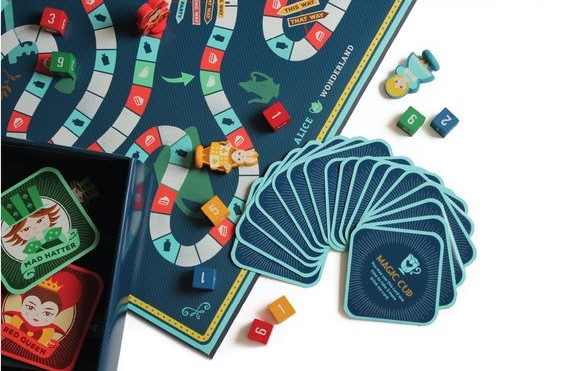Game Design and Where to start !
cartoon image of board game
source :Behance
It is fascinating
to study the various expressions and names when explaining the primary
fundamentals of game design. From terms such as conflict, end as means,
limiting context, and a wide-ranging variety of numerous more phrases.
To me at
least this very well seems like a foreign language, although I am quite certain
that within due time this will undoubtedly be a language that I call my own.
Initially, the idea of designing and creating my own game was quite a daunting and scary thought.
The immense pressure I felt to be solely in charge of using not my intelligence
but my imagination (something which I cannot always count on to work) to create
a game.
In an article by Brenda Brathwait , she encourages us to take a pen and a sheet of paper and start off by drawing a simple line on a piece of paper, followed by drawing a start goal and an end goal . Brenda continues to coach us step by step until within a matter of minutes we have created our first ever game. Agreed, it may not be the most successful or well-designed game, but it is a game nonetheless.
This
greatly lowered the amount of stress and anxiety I faced initially going into
this task of creating my own game.
Seeing how
simple and effortless it is to produce a skeleton of a game idea demonstrates a
perfect example of how much I have been overthinking all of my ideas.
In my mind, It has been set in stone that I need to have the finished, fully designed artifact
inside my head before I can even attempt to create any sort of progress of
actually making my game. An idea that is ridiculously irrational and
impossible. the idea that perfect is immediate and not developed over time Is
just blatantly wrong.
I now understand
from the brilliant articles that I read that, the initial game design idea
should take no longer than three minutes to design, if it takes longer than that,
then you are doing something incorrectly. This method of quick thinking allows
our minds to create rapidly without getting carried away with over analysing
confusing specifics.
below I have attached three articles to read through which will help you to understand this topic more in-depth. I recommend anyone who has an interest in the psychology and history of game development to read through these articles as they give a very inciteful view to the biggest questions, why? and how?
"What is a game anyways?" - Click here
"Video Game History"- Click here
"Understanding the physiology behind game development"- Click here



Excelent vocablury on your blog regarding the reports. I do agree, starting anything to do with game design is daunting to say the least :D
ReplyDeleteWhat I would like to know is how can anyone design a game in 3 mins. I keep struggling because there is nothing that motivates me or really pops out. so I must be doing something wrong, that being said, I do like your blog post and the inspiration it gave me to approach things differently .
Hey mollie, I really like your take of "what is a game". I love your academic style of writing is so nice to read. When following the steps of Brenda to make a "game " which I agree isn't the most successful or well-designed game but it's a game. Going back to the basics always keeps you stress free.
ReplyDeletei really like the layout of your blog its so aesthetically pleasing to the user.
see you around on campus :)
Alex.